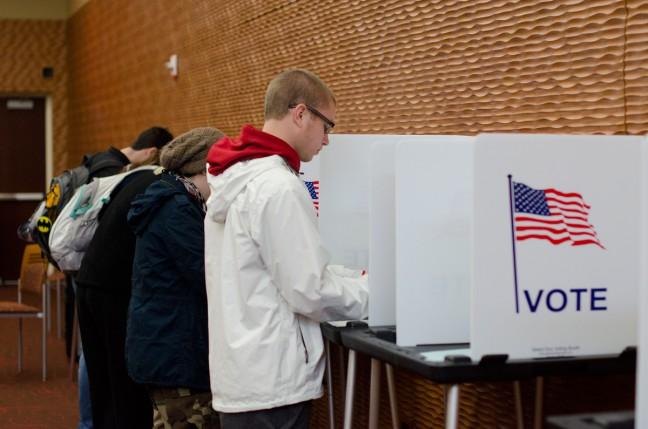Looking to reduce confusion surrounding Wisconsin’s voter ID law, U.S. District Judge James Peterson ruled on Thursday that state officials must take steps to better publicize the law.
Liberal group One Wisconsin Now filed a motion Monday to suspend the law for this election. But instead of suspending the law, Peterson ruled that the Department of Motor Vehicles and Wisconsin Elections Commission create a “targeted remedy.” This requires the DMV and the Elections Commission to come up with ways to raise awareness on issues surrounding the voter ID law, Wisconsin Common Cause director Jay Heck said.
Federal judge will consider suspension of Wisconsin voter ID law
One Wisconsin Now director Mike Browne said the decision highlights concerns that state officials are either unable or unwilling to fairly administer the voter ID law. He said taking steps to publicize the law would ensure that legal voters who wish to vote will be able to do so without any confusion.
“Legal voters who want to vote this November are going to be able to do so and won’t be disenfranchised because of bureaucratic shortcomings that are really no fault of their own,” Browne said.
The state will also have to give weekly reports on its progress to Peterson, Browne said.
Heck said the Department of Justice is not going to seek a repeal on Peterson’s ruling from today. But Wisconsin Attorney General Brad Schimel’s motion against Peterson’s July ruling is still pending in the Court of Appeals.
Schimel said in a statement that Peterson’s July ruling would lead to “major disruption.” Schimel said constantly changing the law would confuse voters even more and make it difficult to keep the public aware of the policy changes.
Heck said the targeted remedy concept may not be enough, arguing that a better remedy might be to create an affidavit that a person could sign if he did not have all the necessary documents to obtain an ID. The affidavit would prove that a voter is in the process of getting an ID but can still vote.
Heck said the affidavit policy has worked well in Michigan, which also has a voter ID law in place.
Browne said Peterson did not suspend the voter ID law completely because other courts could easily overturn his decision. The U.S. Court of Appeals for the Seventh Circuit and the U.S. Supreme Court both continue to uphold the voter ID law, he said.
The voter ID law is still in effect for the presidential election on Nov. 8.


















